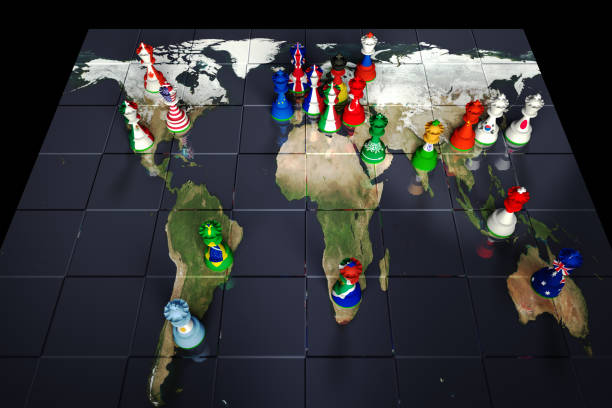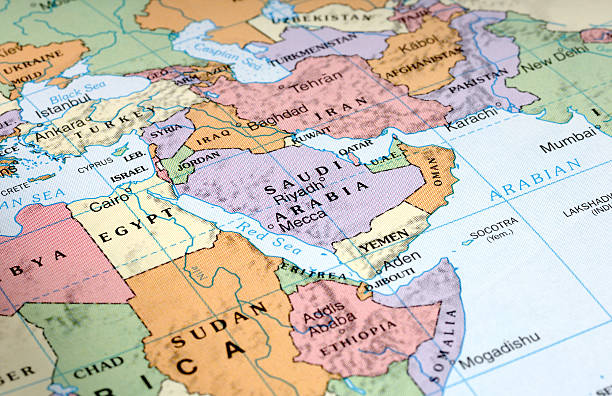The major headline of the past week was the agreement of G20 countries on the New Delhi Leaders’ Declaration. The Western media generally reported that the leaders underscored that all states must act in a manner consistent with the purposes and principles of the UN Charter in its entirety; they must refrain from the threat or use of force to seek territorial acquisition against the territorial integrity and sovereignty or political independence of any state; and that the use or threat of use of nuclear weapons is inadmissible. However, there was some disappointment because the Declaration avoided any mention of Russia. The Bali G20 Leaders’ Declaration of 15-16 November 2022, mentioned Russia by name whereas the New Delhi Declaration only mentions the fundamental principles of the UN Charter, although who the addressee is amply clear.[i]
What is the underlying reason for this “step back” if that is indeed the case? India had invested a lot in the success of this summit and Washington did not want to prove the spoiler since it sees India as a key partner in the containment of China. After all, India had abstained in the votes for both UN General Assembly resolutions on Russia’s invasion of Ukraine mentioned in the New Delhi Leaders’ Declaration.
India’s Chandrayaan-3 spacecraft landed on the lunar surface on August 23. The safe touchdown made India only the fourth nation in the world to enjoy such an achievement. Days later, India launched its first spacecraft to study the sun. The timing of the two missions was no doubt linked with the G20 summit and aimed at confirming India’s status as a major power in a multipolar world.
What has been overlooked in the Western media is paragraph 47 of the Declaration titled “Reinvigorating Multilateralism” which says that the global order has undergone dramatic changes since the Second World War due to economic growth and prosperity, decolonization, demographic dividends, technological achievements, the emergence of new economic powers and deeper international cooperation; and that today’s challenges are inter-connected and can only be addressed through reinvigorated multilateralism, reforms and international cooperation.
The leaders emphasized the need to reinvigorate multilateralism because the competition between Washinton and Beijing, and the former’s containment policy of the latter have triggered frequent references to a new Cold War. Needless to say, to predict what a new Cold War might look like, one needs to remember the parameters of the first one. So, I would suggest that young Turkish diplomats and students of international relations read Odd Arne Westad’s most remarkable book titled, “The Cold War A World History”. Because it helps one understand why many countries today do not wish to become part of a new Cold War.
After the Suez crisis in 1956, Prime Minister Jawaharlal Nehru said: “The greatest danger the world is suffering from is this Cold War business. It is because the Cold War creates a bigger mental barrier than the Iron Curtain or brick wall or any prison. It creates barriers of the mind which refuses to understand the other person’s position, which divides the world into devils and angels.”[ii]
Indeed, the end of the Second World War also marked the end of colonialism. Some European powers were not ready to give up their colonies in a flash but they could not persevere. However, the fierce struggle between capitalism and communism, and overt/covert interventions by the US and some European powers across the world to fight the spread of the communist ideology led to deep resentment among the newly independent countries. Thus, they launched the Non-Aligned Movement at the Afro-Asian Conference in Bandung in 1955.
Today, with the prospect of a new Cold War, one hears more and more about the Global South, a broad term representing the large group of nations determined not to become pawns in a new chapter of the competition for global hegemony. In 1972 President Nixon traveled to Beijing to secure China’s cooperation in containing Russia. What if India, now the world’s most populous nation, were to surpass China’s economic performance and start flexing its muscles?
Matias Spektor, in a Foreign Affairs article titled, “In Defense of the Fence Sitters” explains the logic underlying the reluctance of the Global South to take sides in a new confrontation.[iii]
In New Delhi, Saudi Arabia, the European Union, India, the UAE, France, Germany, Italy, and the US committed to working together to establish the India – Middle East – Europe Economic Corridor (IMEC). The IMEC is expected to stimulate economic development through enhanced connectivity and economic integration between Asia, the Arabian Gulf, and Europe. The initiative, no doubt, is also intended to counterbalance China’s vast infrastructure corridor, the Belt and Road project. Hopefully, it would stimulate economic development, but it would not lead to dramatic change in the policies of the countries of the Global South.
On Sunday President Biden visited Vietnam, the country that witnessed the greatest tragedy of the Cold War. In l964, to prevent the spread of communist rule in Southeast Asian countries the Johnson administration decided to act under the “domino theory”. As the Vietnam War ended, it was clear that the intervention had brought about a huge drop in global support for the US.
In Hanoi, President Biden and General Secretary Nguyen Phu Trong elevated US‐Vietnam relations from a “Comprehensive Partnership” to a “Comprehensive Strategic Partnership”, “renewing the strength and dynamism of the US‐Vietnam relationship as both countries work together to achieve shared goals of peace, prosperity, and sustainable development.”[iv]
Considering the past, this is a positive development. Mr. Biden was extended a very warm welcome by the General Secretary. But would this lead to a major change in Hanoi’s policies? In his press conference in Hanoi President Biden said that the progress achieved with Vietnam on Sunday builds on Washington’s regional relationships. Does this mean that Hanoi would join the US, the UK, Japan, and Australia in containing China? No. Hanoi has taken this step because it sees merit in diversifying its relations with an emphasis on economic cooperation. Only days before President Biden’s visit, it was reported that Vietnam was making clandestine plans to buy an arsenal of weapons from Russia in contravention of American sanctions. In other words, a step forward with a major power does not necessarily mean a step back with another.
In Hanoi, President Biden, in response to a question about his visit to Vietnam following Washington’s recent pacts and deal with the regional countries which China sees as Washington’s Cold War mentality said: “So, I think we think too — too much in terms of Cold War terms. It’s not about that. It’s about generating economic growth and stability in all parts of the world. And that’s what we’re trying to do.”
As the G20 leaders have agreed, the best way to deal with today’s global challenges is effective multilateralism through meaningful, result-oriented dialogue, and the first step to launching such cooperation is genuine UN reform if the organization is to avoid the same fate as its predecessor, the League of Nations.
———————————————————————————————————————–
[i] “8. Concerning the war in Ukraine, while recalling the discussion in Bali, we reiterated our national positions and resolutions adopted at the UN Security Council and the UN General Assembly (A/RES/ES-11/1 and A/RES/ES-11/6) and underscored that all states must act in a manner consistent with the Purposes and Principles of the UN Charter in its entirety. In line with the UN Charter, all states must refrain from the threat or use of force to seek territorial acquisition against the territorial integrity and sovereignty or political independence of any state. The use or threat of use of nuclear weapons is inadmissible.”
[ii] Odd Arne Westad, The Cold War A World History” (Penguin Books) p.274.
[iii] https://www.foreignaffairs.com/world/global-south-defense-fence-sitters?utm_medium=newsletters&utm_source=weekend_read&utm_content=20230909&utm_campaign=NEWS_FA%20Weekend%20Read_090923_In%20Defense%20of%20the%20Fence%20Sitters&utm_term=FA%20Weekend%20Read-012320
[iv] https://www.whitehouse.gov/briefing-room/statements-releases/2023/09/10/fact-sheet-president-joseph-r-biden-and-general-secretary-nguyen-phu-trong-announce-the-u-s-vietnam-comprehensive-strategic-partnership/










